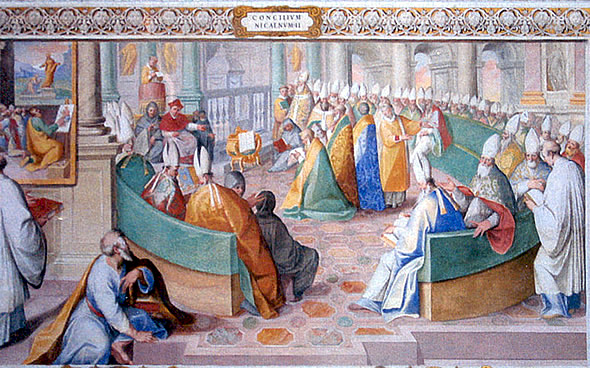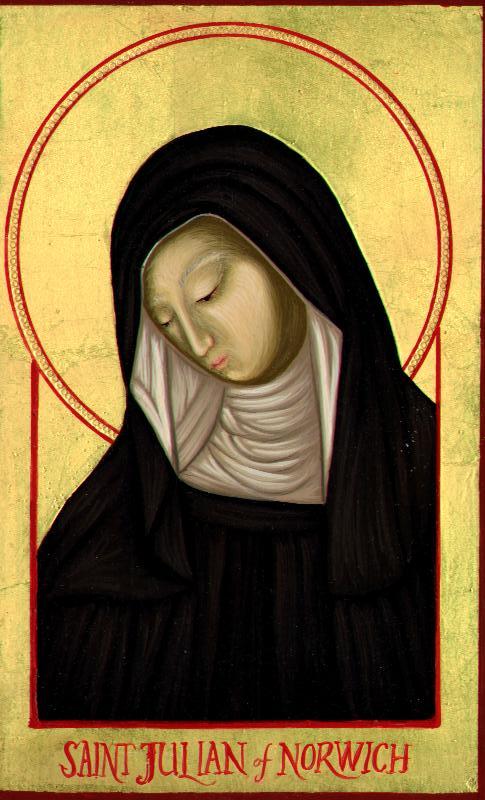
Council of Nicea
(Sistine Salon)
All we have to talk about God are metaphors (last post). But God can’t be contained in any construct we can hold in our brains. This dichotomy invites us to revisit one of our most familiar metaphors for God; a “person.”
Through the centuries, we Christians have had a somewhat divided mind on this point. On the one hand, at the Council in Nicea (325AD) we decided that God was “one substance, three persons.” Once we used that word, “person,” we couldn’t help but insert into our tradition a deep, visceral sense that God is a person like you and me. We hear the Bible stories in which God acts like a person (has feelings, thinks thoughts, does deeds), and we walk away with a reduced version of God in our heads. We contain the uncontainable. We shoehorn God into a “like-me” box.
 But on the other hand, our scriptures and mystics keep telling us not to fall into this trap.
But on the other hand, our scriptures and mystics keep telling us not to fall into this trap.
One of our saints, Julian of Norwich, stands in this tradition; insisting we not reduce our irreducible God into any image; even one as familiar to us as “Father,” or “King,” or “Bridegroom.” One of the main themes of her life was to tinker with our images of God.
As our Western, Roman sensibilities kept pushing on us, a standardized God that everybody in the Empire could conform to, she insisted we not. Hers was an appreciation for Mystery and the Unknowable Unknown.
As our mystics have always done, she tried out all kinds of images for God, jumping easily from one to another, acknowledging that God is beyond any one. She spoke of God as “energy;” alluded to the Divine as “the soil from which life emerges.” She imagined God, not as an external being “out there,” but as Presence in everything. She spoke of “smelling God,” and “swallowing God in the waters and juices of the earth.”
Julian insisted God is not an entity separate from humanity. For her, God is the very energizing force that animates humanity. See God, she encouraged us, as the heart of creation, the presence of Love at the center of all that is. The deeper we move into the human soul, the closer we become to the Divine. The nearer we are to our true selves, the more we sing the song of Divine love.
Hers is a very different way of framing God than “one substance, three persons.”
And as we mentioned in the last post, different metaphors for God lead us on very different spiritual journeys. As our current Western Christian experience bespeaks the need for a better framing narrative, a good starting point would be trading our image of God in for a new one.